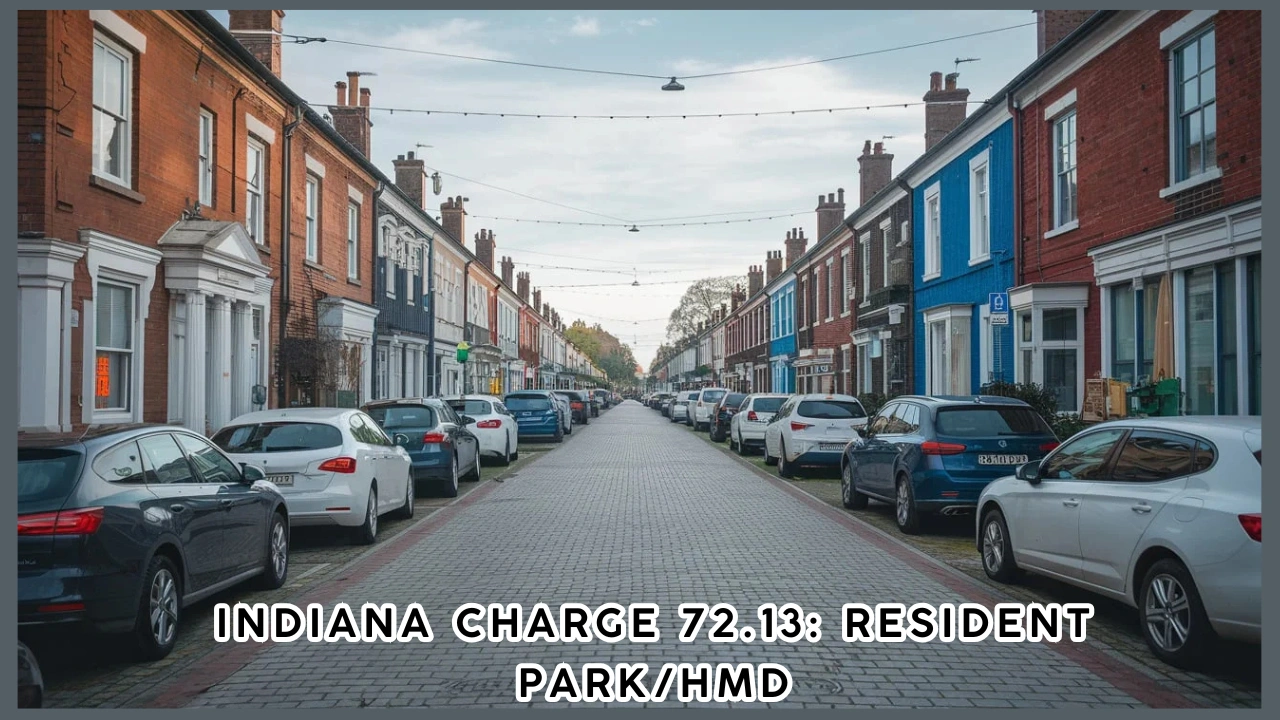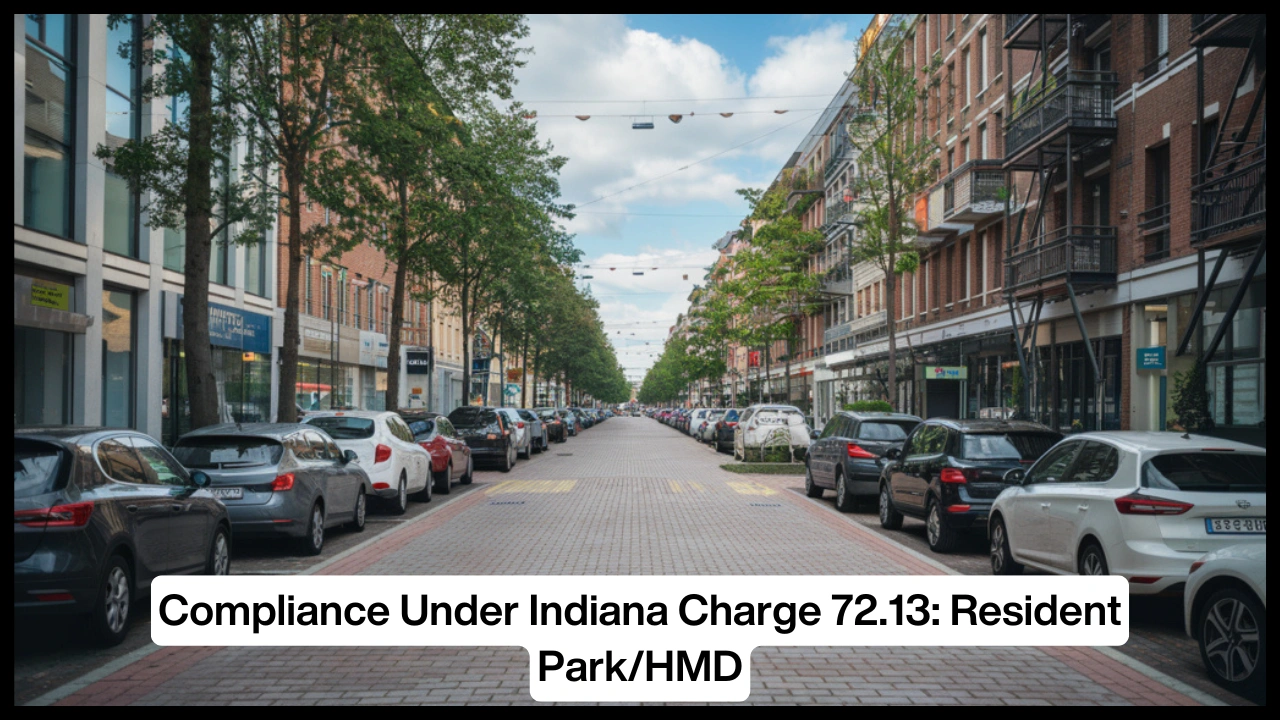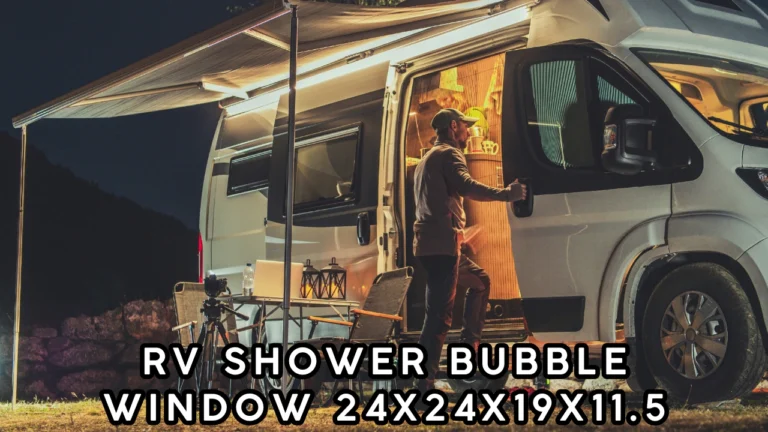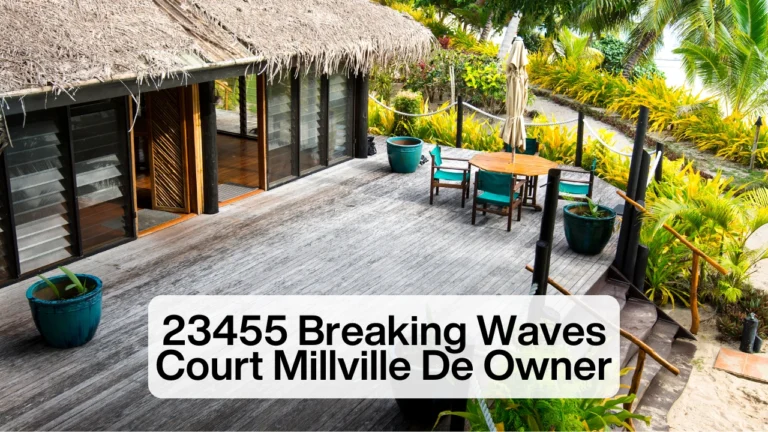Indiana Charge 72.13: Resident Park/HMD – A Breakdown of Resident Rights

Indiana charge 72.13: resident park/hmd is a regulation addressing parking and residential management in specific areas of Indiana. This law focuses on creating order in communities, particularly where mobile dwellings and homeowner-managed districts (HMDs) are involved. It aims to maintain the balance between resident rights and the responsibilities of park operators. Understanding this charge is crucial for anyone living in or managing such communities, as it sets a clear framework for conduct, parking, and community upkeep.
What Is Indiana Charge 72.13: Resident Park/HMD?
The term Indiana charge 72.13: resident park/hmd refers to a legal guideline applied in certain residential and mobile dwelling communities in Indiana. These areas are often managed under HMD frameworks, which stand for Homeowners’ Management Districts. These districts ensure that shared spaces, parking, and maintenance are handled efficiently, creating a safe and equitable living environment. Residents must adhere to local regulations, including acquiring necessary permits and following community rules. Park operators must also meet specific standards to ensure they provide quality services and maintain proper living conditions.
The Purpose Behind Indiana Charge 72.13: Resident Park/HMD
The primary goal of it is to protect the rights of residents while ensuring the smooth operation of communal spaces. It addresses issues like unauthorized parking, lack of proper permits, and disputes over maintenance responsibilities. This regulation is vital for reducing conflicts in crowded communities where resources such as parking spaces are limited. By creating a structured system, this charge ensures fair treatment for both residents and park operators.
Key Components of Indiana Charge 72.13: Resident Park/HMD
| Key Component | Description |
|---|---|
| Parking Permit Requirements | Residents must acquire permits to park in designated areas, preventing unauthorized vehicle use. |
| Maintenance Obligations | Park operators are required to maintain roads, utilities, and shared facilities in good condition. |
| Resident Rights | Ensures non-discrimination, access to essential services, and protection from unjust treatment. |
| Dispute Resolution Mechanisms | Provides clear procedures for addressing conflicts between residents and park operators. |
| Enforcement of Rules | Park operators must implement and monitor community rules, including parking and behavior guidelines. |
| Transparency and Communication | Operators are required to clearly communicate rules, fees, and updates to residents. |
This table highlights the foundational elements of Indiana charge 72.13: resident park/hmd and their role in maintaining a balanced community.
Key Features of Indiana Charge 72.13: Resident HMD
The Indiana charge 72.13: resident hmd law outlines specific responsibilities for both residents and park operators. Residents are required to obtain parking permits for designated areas, ensuring only authorized individuals use these spaces. This law also enforces strict maintenance protocols for common areas like roads, walkways, and shared facilities. Operators must meet safety and cleanliness standards, keeping the community environment habitable and appealing.
Residents can expect protection under this law, such as the right to non-discriminatory treatment and access to essential services. If a park operator fails to fulfill their obligations, residents have legal options to address these issues. This two-way accountability system fosters harmony within the community and ensures that everyone complies with established rules.
Common Violations Under Indiana Charge 72.13: Resident Park/HMD
Violations of Indiana charge 72.13: resident park/hmd can lead to fines or penalties. One common issue is unauthorized parking in designated spaces without the proper permits. Such actions disrupt the community and reduce the availability of parking for authorized residents. Park operators can also face violations if they fail to maintain facilities or neglect their duties outlined by the regulation. Poor waste management, lack of repairs, and failing to address safety concerns are examples of operator negligence.
Also Read: APL66K Future of Real-Time Data Analytics and Machine Learning
How Indiana Charge 72.13: Resident Park Impacts Communities
Communities operating under Indiana charge 72.13: resident park/hmd benefit from structured management systems. Residents enjoy a sense of security knowing that their rights are protected and their living environment is maintained. Parking regulations under this law prevent overcrowding and unauthorized usage, which is especially important in urban or densely populated areas. On the other hand, operators must invest in the upkeep of the community, ensuring roads, utilities, and amenities meet the required standards.
Steps to Obtain Compliance Under Indiana Charge 72.13: Resident Park/HMD
Residents looking to comply with Indiana charge 72.13: resident park/hmd should start by securing the necessary permits for parking or housing. This often involves submitting documentation like proof of residence or vehicle registration to the local management authority. Residents must also familiarize themselves with the rules and regulations specific to their park or HMD area.

Park operators must maintain open communication with residents and ensure transparency in their operations. Regular inspections, timely repairs, and proper management of shared spaces are essential to comply with the law. A clear understanding of rights and responsibilities ensures smoother interactions between residents and park management.
Also Read: Şeygo Versatility and Innovation in an Emerging Term
Benefits of Indiana Charge 72.13: Resident Park/HMD
The regulation brings numerous benefits to both residents and operators:
- Enhanced Community Order: Clear rules and responsibilities reduce conflicts and create a harmonious living environment.
- Improved Living Conditions: Regular maintenance and access to essential services elevate the quality of life for residents.
- Fair Resource Allocation: The permit system ensures that resources like parking spaces are used efficiently.
These advantages make Indiana charge 72.13: resident park a vital part of community management in Indiana.
Comparison of Indiana Charge 72.13: Resident Park with Similar Laws
When compared to similar laws in other states, Indiana charge 72.13: resident park emphasizes accountability and fairness for both residents and operators. While some states may focus more on rent control or zoning issues, Indiana’s approach prioritizes maintaining quality living conditions and equitable access to resources. This makes it an effective model for fostering harmony in communities where shared living and parking resources are prevalent.
| Aspect | Indiana Charge 72.13 | Other States |
|---|---|---|
| Focus | Resident rights and park upkeep | Rent control or zoning rules |
| Permit Requirements | Mandatory for parking and residency | Varies by state |
| Enforcement | Penalties for both parties | May focus on residents only |
Challenges Faced by Residents and Operators
Despite the benefits of Indiana charge 72.13: resident hmd, challenges still exist. Residents often face issues with delayed maintenance or unclear communication from operators. These delays can lead to frustration, especially when essential services are disrupted. On the other hand, operators may struggle with non-compliant residents who fail to follow community rules, creating disruptions within the park.
Dispute resolution mechanisms outlined in the law help address such challenges. Residents can formally lodge complaints against operators, while operators can enforce penalties on non-compliant residents. This system ensures that both parties have equal opportunities to voice their concerns and find resolutions.
Future Implications of Indiana Charge 72.13: Resident Park/HMD
As communities grow, the role of Indiana charge 72.13: resident hmd will become even more significant. Updates to this regulation may include stricter enforcement measures or additional guidelines to address emerging challenges. The introduction of technology in monitoring and maintaining compliance could streamline operations, benefiting both residents and operators.
Conclusion
In conclusion, It is essential for creating organized and harmonious communities. It provides a balanced framework where residents’ rights are protected while ensuring operators maintain high standards of service. For anyone living in or managing such communities, understanding this law is key to ensuring a safe and equitable living environment.
Also Read: Holiday Table W101 Tips for a Show-Stopping Festive Feast



